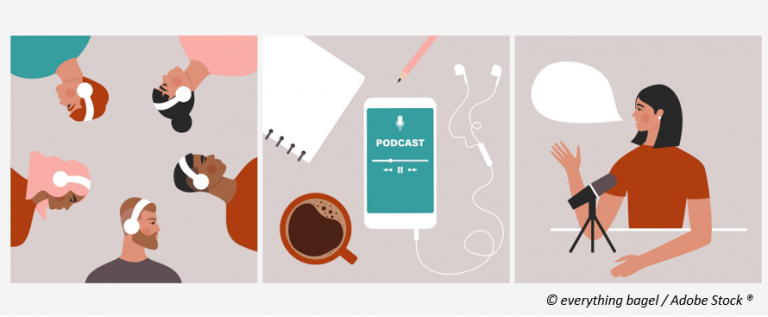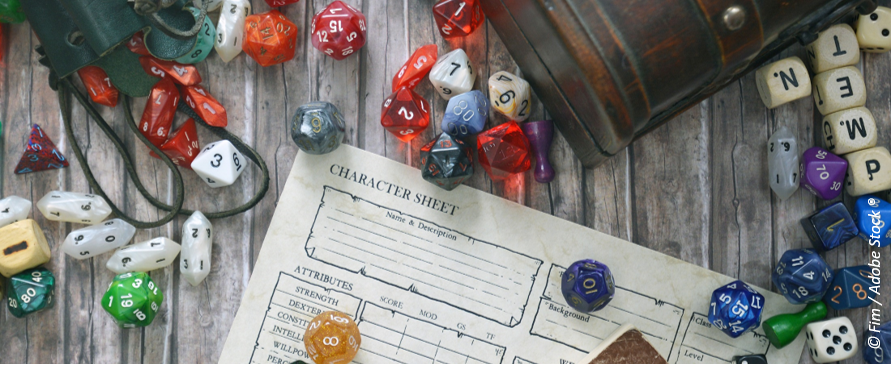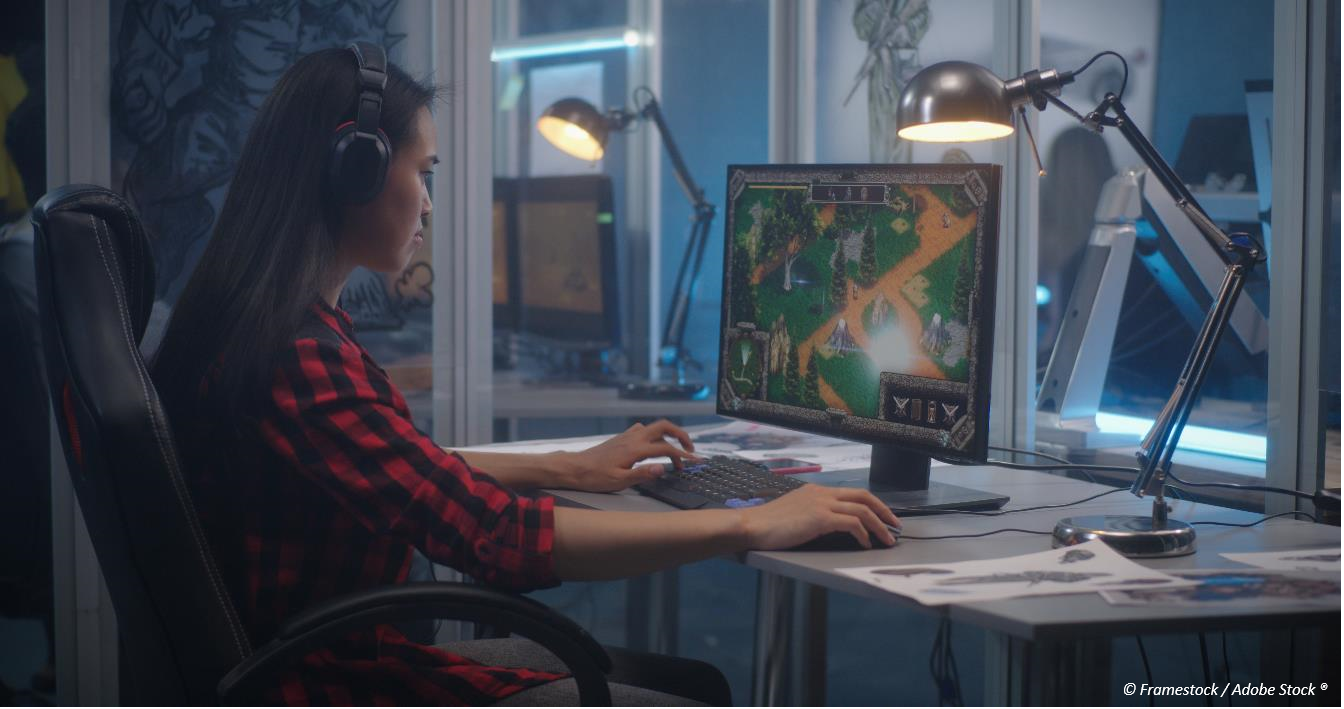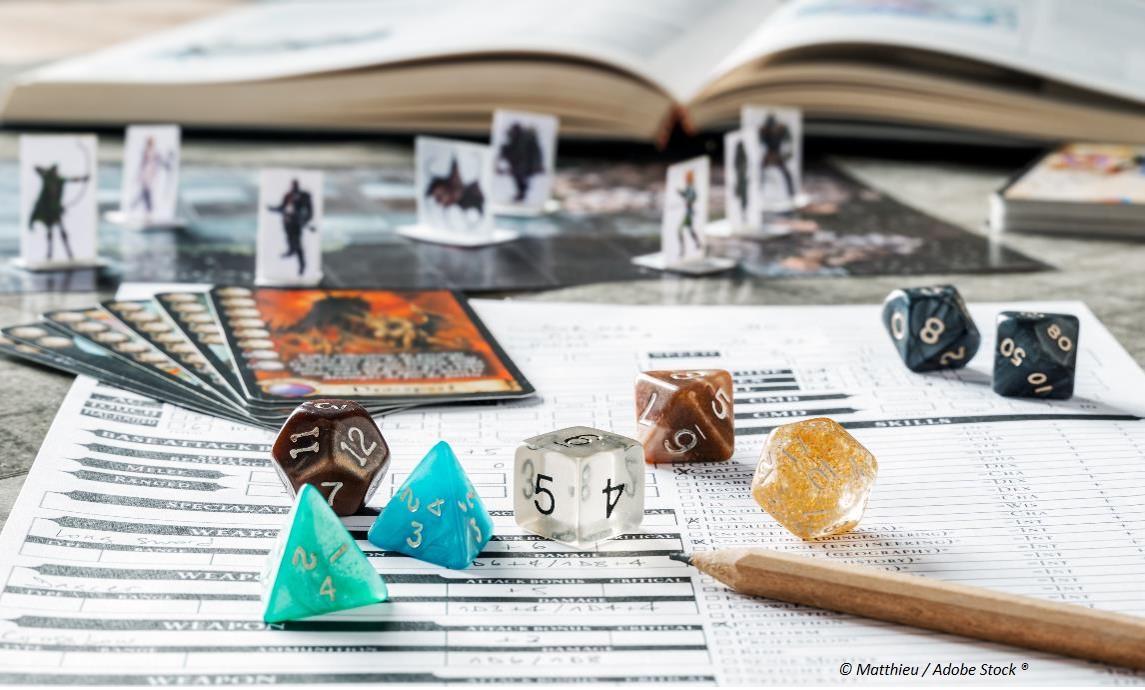Role-playing Games: training where you are the hero
Role-playing Games are by no means new. They proved their usefulness in the context of training and development. They offer endless possibilities whilst distinguishing themselves from their cousins – serious games, case studies and simulations – as they immerse the learner in a tale of which they are both authors and actors. Let us zoom in on an approach with strong potential.
What are “Role-Playing Games”?
Before going any further, let us focus on the definition of Role-Playing Games (RPGs), which work in a learning and development context as well as a gaming one. The definition from the French Wikipedia page sums all the key points on the subject:
“A role-playing game is a technique or activity, through which a person acts as a character (be they real or imaginary) in a fictional environment.
Through this role, the participant influences the development of their character and story, using physical or fictional actions, as well as narrative ones (improvised dialogues, description, acting…) and active decisions.”
As such, the difference with similar activities becomes clear:
- In a simulation, the training facilitator knows the scenario and key points of the answer to the simulated situation, thanks to which they can guide and debrief the participants on the good practices associated with the situation. In a RPG, the scenario is completely open (meaning the players can choose any answer available to them) and there is no expected practice. Randomness is key.
- In a case study, the standpoint is rather more analytical and less oriented toward acting and improvisation, with yet again an expected answer, or type of answer.
- It is not a serious game either, as Role-playing Games are most of the time devoid of a “serious” (or business-related) context and realistic situation. Instead, RPGs focus more on environments further from business-like universes, where the imagination and creativity of the participants are of the utmost importance (whereas serious games generally follow a pre-written script and scenario).
A brief history of Role-playing Games
RPGs are not a recent invention, and that goes for Learning and Development too.
As early as the 1930s, murder parties (evening parties where guests try to resolve a fictional murder case) and war games (where players recreate historical battles on a table top) were forerunners of RPGs, by immersing players in the common creation and advancement of a story (or conflict). The even older theatrical improvisation method was another inspiration for our studied activity.
Yet, it took until 1974 for the first Role-playing (acknowledged as such) to appear. It was the now famous Dungeons and Dragons – abbreviated to D&D by fans – counting more than 40 million players worldwide in 2020. The D&D format established the basis of “table top” or “pen and paper” RPG: players (named PC for Player Characters), sit around a table to build and experience a scenario through which a Dungeon Master (DM) guides them. The DM will weave the narrative and play all the Non Player Characters (NPCs), be they allies or foes of the PCs. Some pens and a bunch of paper are enough to deliver an immersive experience where anyone can contribute, immerse themselves and enjoy partaking in a shared story.
Many different variations then follow:
- Starting in 1977, the first “Live Action RPG” sessions took place. During these, participants enact their characters wearing outfits or costumes, in real-world settings (forest, castle…)
- In 1978, a British student invented the very first computer-based Role-playing Game, named MUD, for Multi User Dungeon. This is a text-based game in which a solo player inputs commands to make decisions.
- The 1980s saw the further development of computer and console-based RPGs, with a Japanese school (Dragon Quest, Final Fantasy…) and a Western one (Ultima, Fallout…). Players now control their characters in real time and, in doing so, interact with the vast universe created by the game’s developers.
- RPGs experienced exponential growth in the 1990s in online forums. In these, games are played through exchanges of text messages.
- 1996 is the year of the release of Meridian 59, the first modern MMORPG (Massive Multiplayer Online Role-playing Game, a computer-based RPG in which multiple players interact online within a common fictional world). The class-defining game of this genre follows it in 2004: World of Warcraft.
- Most recently, Rollisteam, the fist VTT (for Virtual Tabletop) launched in 2009. It allows players to run tabletop RPGs while online. The software presents a “table” and participants can communicate via phone or video calls.
Of course, RPGs keep evolving and all these variations have been adopted in the learning and development field too. For instance, in an e-learning course, a pre-written scenario with various branches, like in adventure game books, can replace the DM. One can also observe the near-infinite wealth of possible themes and universes, from Victorian England to a dystopian future, through epic fantasy and supernatural investigations.
A few key concepts
Role-playing games, like so many other activities, have their own code of conduct and associated concepts. Here is a non-exhaustive list to help better understand the inner workings of RPGs:
Immersion is a core concept. As explained earlier, PCs are actors of their own story and destiny. They make all the decisions within the scenario which they share, and accept the consequences. As such, a player may very well decide to have their character pole-vault (fictionally!) without having any experience of it, but doing so is taking the risk of a failure, or even an injury. The most famous question that a DM is known to ask is “what do you do now?”. To elaborate: “Your party is quietly sitting in a tavern when an obviously grumpy individual is yelling at you. What do you do now?” The players can then choose to answer to the individual’s rant, ignore him or escalate the situation for instance (figuratively, as the action is only narrated, not truly played, except in a Live Action RPG). In doing so, players put various “soft” skills to use, such as autonomy, creativity or management of the unexpected. We will come back to this later.
At the heart of any good RPG is the concept of randomness, which goes along with the idea of character play in many game categorisation systems, such as Roger Caillois’ in 1958. According to this concept, the scenario is but a starting canvas, as players build a commonly shared story around said scenario… and may decide not to follow it. For instance, after having heard a dubious NPC present a dangerous-sounding mission in a tavern PCs can decide to decline the mission. They are well within their rights and the DM must adapt to it.
To solve the overall uncertainty and randomness, many tools exist, the most common being polyhedral dice. These dice can have between 3 and 100 sides (2 being, of course, a coin). However, other methods exist, such as drawing cards, spinning a wheel, using a resolution chart… The aim is to have the player check whether their intended action succeeds or fails.
Using our previous pole-vaulting example:
- The PC wishes to pole vault over an obstacle
- The DM sets a difficulty level for this action for instance a 15 over a maximum of 20, as the action is complex. They then ask the PC to do a “test” in order to check whether their action is a success (meaning a score of 15 or more) or a failure (less than 15).
- In our case, the PC is athletic. Their character sheet (see later in this article) gives them a two-point bonus to this type of physical test. However, their lack of knowledge of pole-vaulting gives them a point of disadvantage.
- After a dice roll, the PC gets 13, which gives them a 14, once the bonus and disadvantage are applied, signifying a failure (maybe with associated consequences such as an injury).
- The uncertainty has thus been resolved: the failure of the action stops the PC from going over the obstacle, forcing them to find another solution.
The materials can vary between the various methods and contexts, but the PCs generally have a detailed character sheet, which each player fills out at the start of the game as they create their character. This sheet in a way gives life to the character, summing up their backstory, as well as detailing their physical and psychological traits (represented by statistics influencing dice rolls), and even listing the gear they have at any given time. Hence, the sheet evolves as the game goes (if the PC loses Health Points or acquired items for instance).
What about training contexts?
As was said earlier in this article, RPGs are compatible with every format and time configuration. They can be used in synchronous (virtual or physical classrooms) or asynchronous (e-learning modules, interactive videos) training, physical,digital or even hybrid formats with guiding apps (which can replace the DM by creating random events) during classroom training for instance.
The main goal of Role-playing games is to enable participants to develop skills that are not bound by a specific context, knowledge or technical expertise which is more typical for approaches like case studies, which are heavily dependent on recreating realistic environments. Examples of skills particularly suited to training though RPGs include autonomy, teamwork (as scenarios are based on reaching a common goal), decision-making, improvisation, creativity and adaptation are eased through playing RPGs.
This is why we recommend fiction-based scenarios as much as possible instead of business-based simulation (where the participants are judged on their knowledge of a job-specific subject). It is of course possible to contribute to the development of management skills outside of a banking branch or an office. Simply putting the participants at the helm of a spaceship trapped in an asteroid field, or as a crew of buccaneers on the seven seas will work wonders, as they will embark (pun intended) on an adventure they will remember, creating a true learning experience, which favours the development of soft skills.
Even more so, the principles of randomness and common narratives imply that players are free to choose, and to not choose, each time accepting the consequences of those decisions. The Dungeon Master / training facilitator / advisor must consider this in their guidance and the animation of the game. This concept is based on the principle of self-determination by Deci and Ryan, explained in another article.
By nature, Role-playing games contribute to a feeling of advancement and self-efficacy as Albert Bandura theorised it, meaning that engaging towards the outcome of a story will also strengthen the participants’ belief in their ability to succeed in their mission.
All these points are key in a Training and Development context and going through a RPG reinforces them even more. However, as with any training game, RPGs are not self-sufficient. A debrief, feedback, and review of the shared experience (potentially strengthened by video captures of the session) are essential to the integration of learnings and the creation of meaningful links with the target skills. As always with training, this method is in no way a universal solution and must be used in coordination with appropriate instructional goals.
Role-playing games in training are thus the product of a rich story, ripe with potential. Hence, the only limit is the scenario writer’s imagination, and even more so that of the participant, who is about to embark on a fun…and instructional adventure!
Axel AZOULAY, Instructional Engineer
Sources :
Bandura, A. (1995), Self-Efficacy in changing societies, Cambridge University Press.
Caillois, R. (1958), Les Jeux et les Hommes, Gallimard, Folio Essais.
Deci, E.L. et Ryan, R.M (2002), Handbook of self-determination research, University of Rochester Press.
« Jeu de rôle », Wikipédia [consulté le 11/04/2022]
Mariais, C. (2010), « Des ressorts de jeu pour une assistance à la conception de scenarios Learning Role Playing Games ». Proceedings of RJC EIAH 2010 – Troisièmes Rencontres Jeunes Chercheurs sur les EIAH.
Patin, B. (2005), « Le jeu de rôles : pratique de formation pour un public d’adultes », Les Cahiers Internationaux de Psychologie Sociale, 2005/3-4







